Abstract
Fractionation of spleen cells was performed on albumin density gradients. Larger cells localized in the low density fractions. 19S and 7S antibody producing cells against SRBC and Esch. coli endotoxin were found to be enriched in low density fractions; high density fractions being depleted of such cells. Antigen-sensitive cells for humoral antibody synthesis were studied in transfer system and were found to be enriched in the high density fractions. Cells initiating graft-versus-host reactions were also enriched in these fractions. The results suggest that the antibody-producing cells are physically distinct from the antigen-sensitive cells initiating humoral antibody synthesis and cell-mediated immunity as well.
Full text
PDF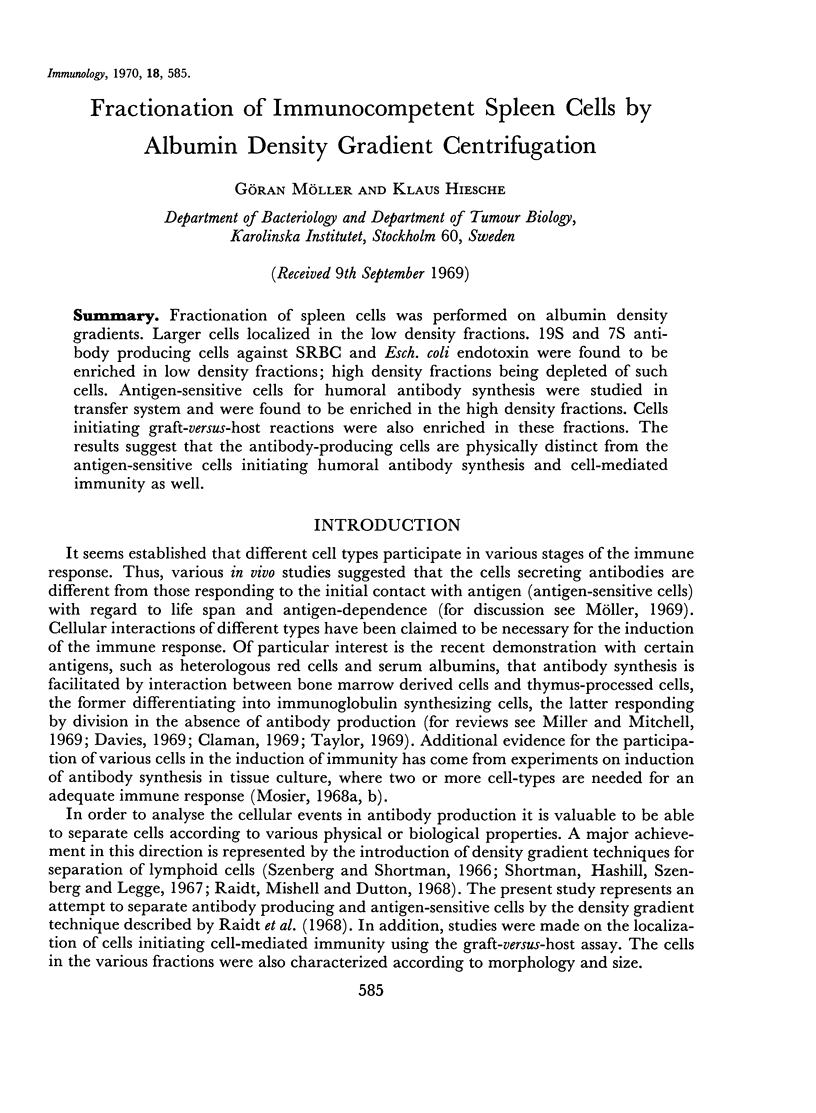
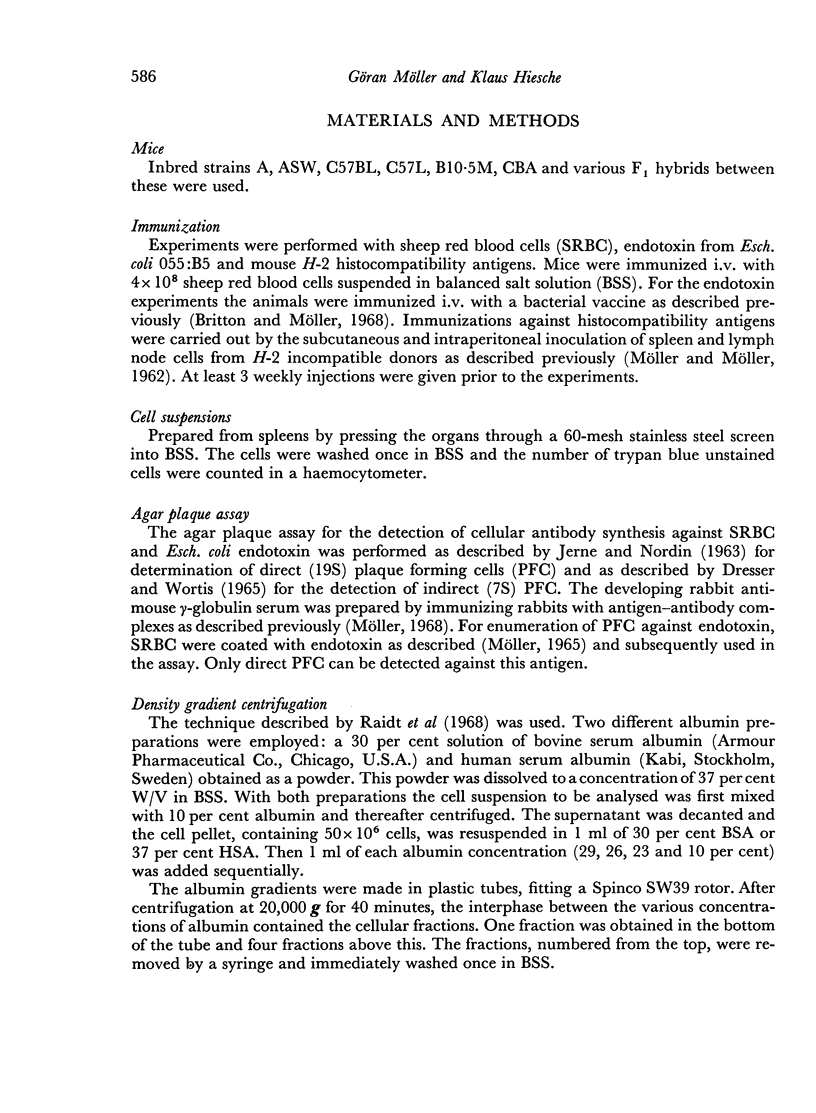
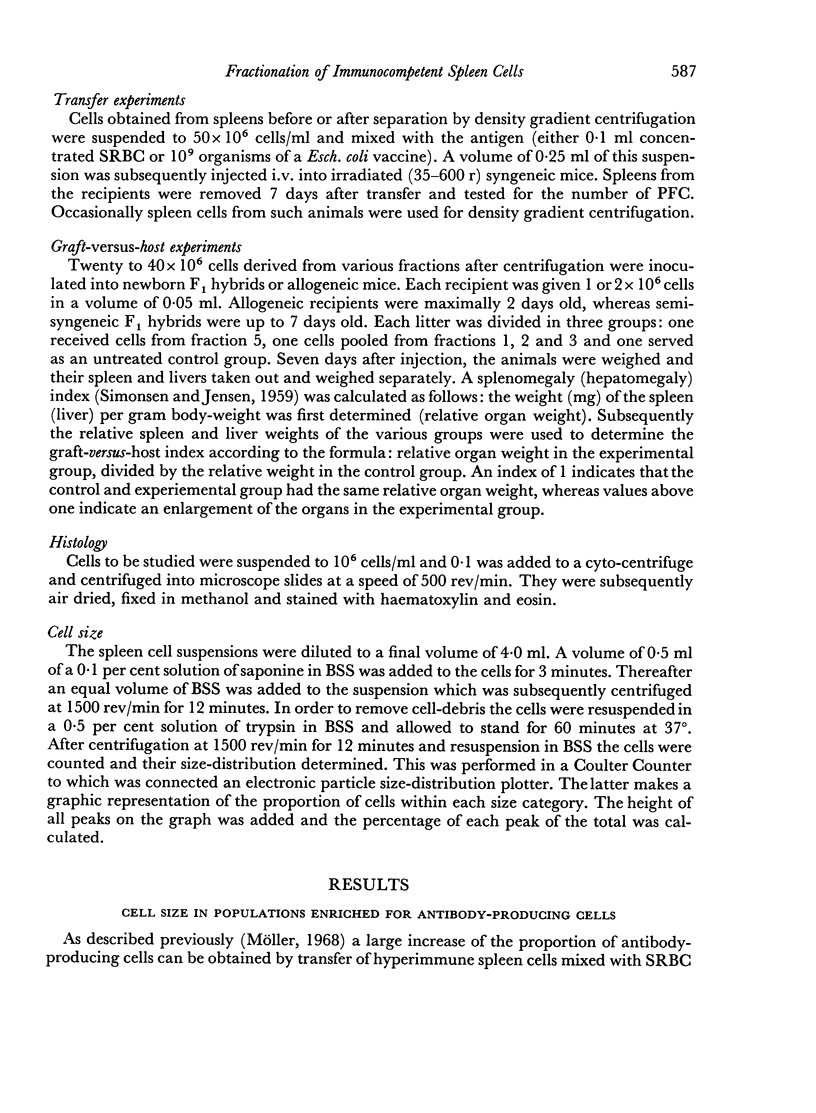
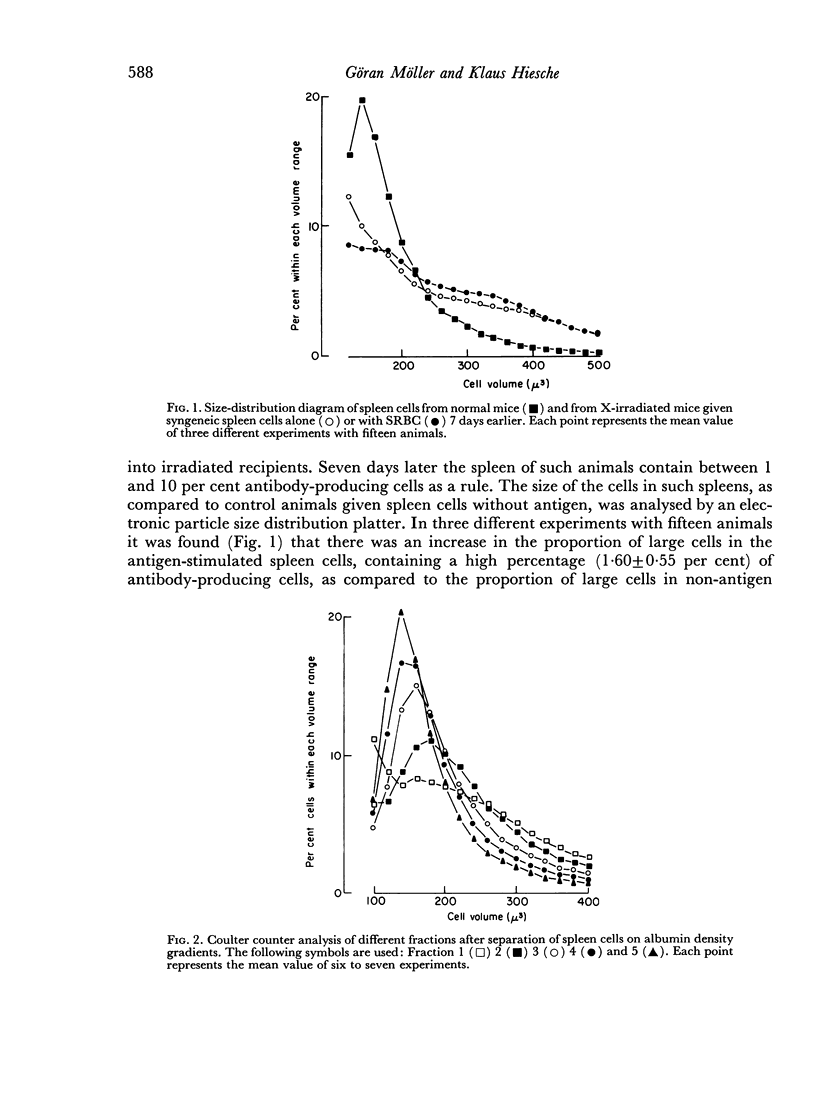
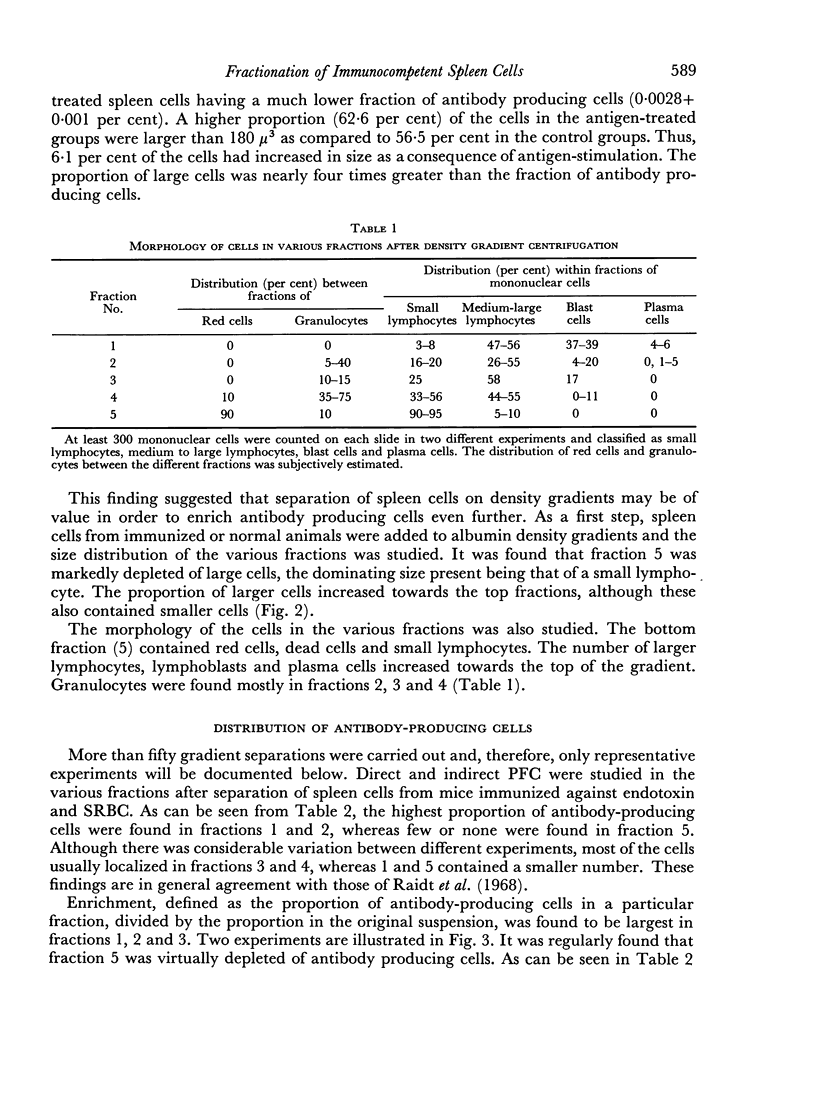
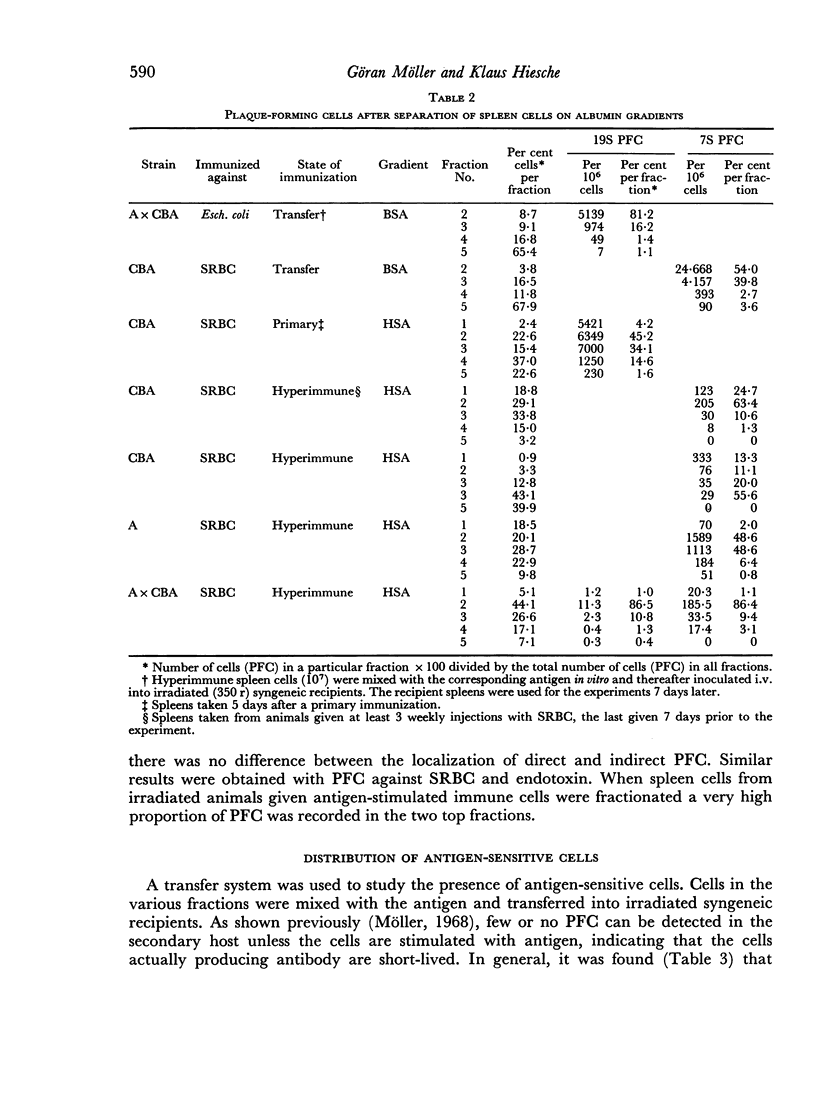
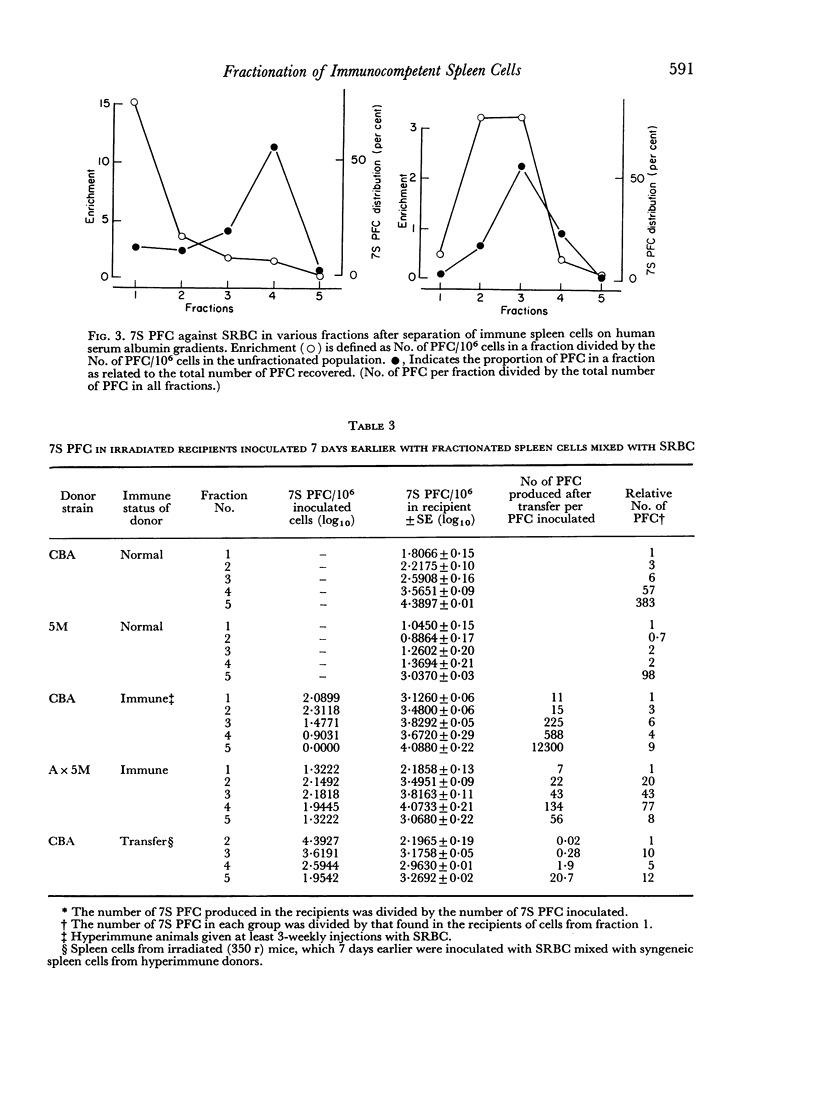
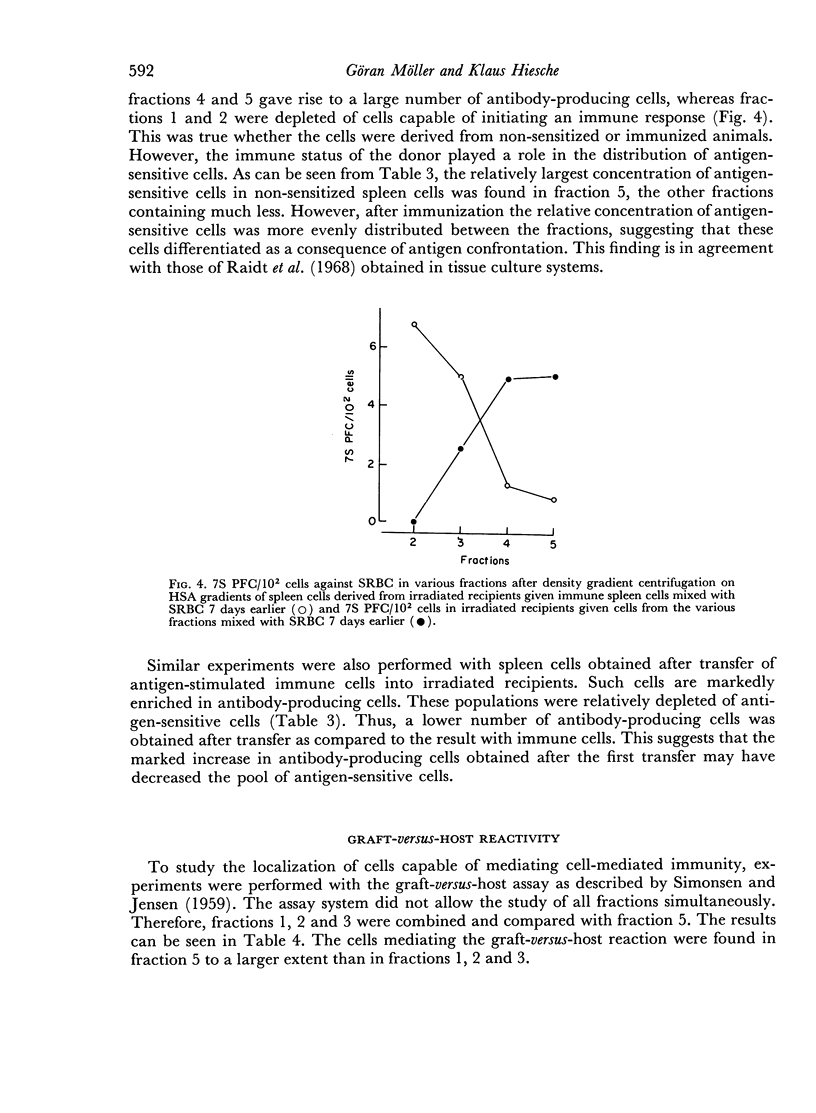
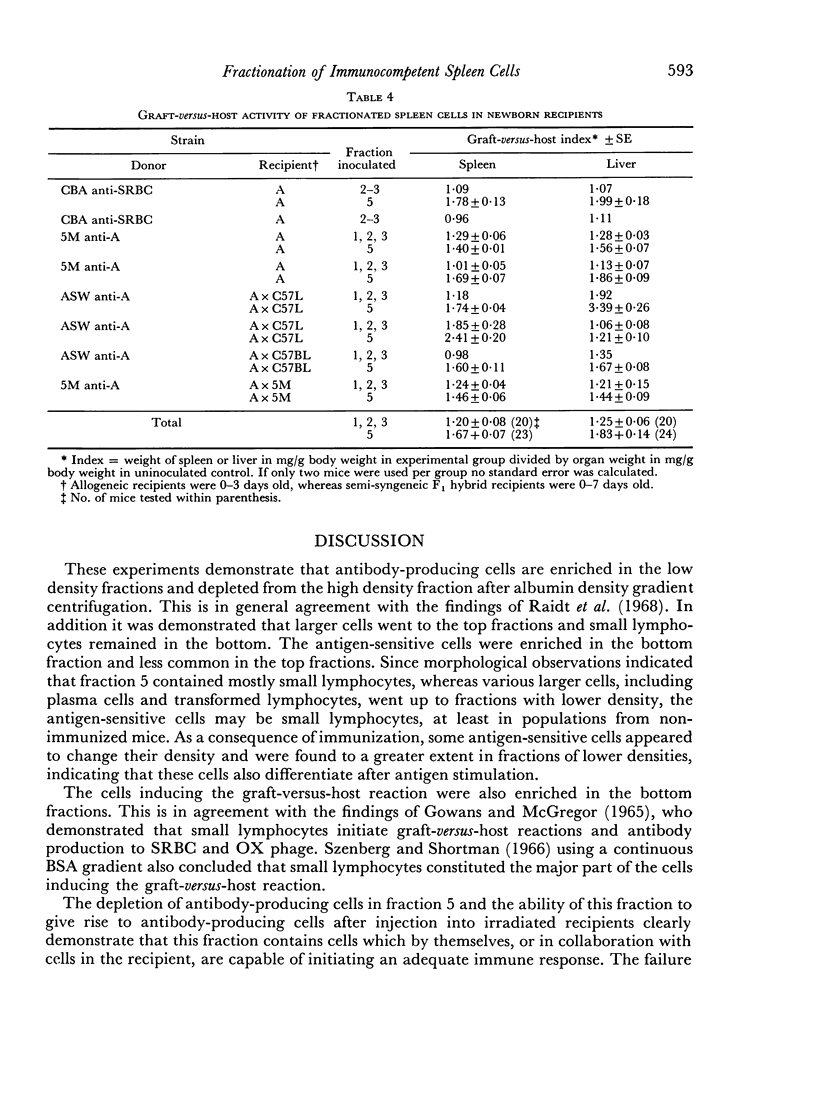
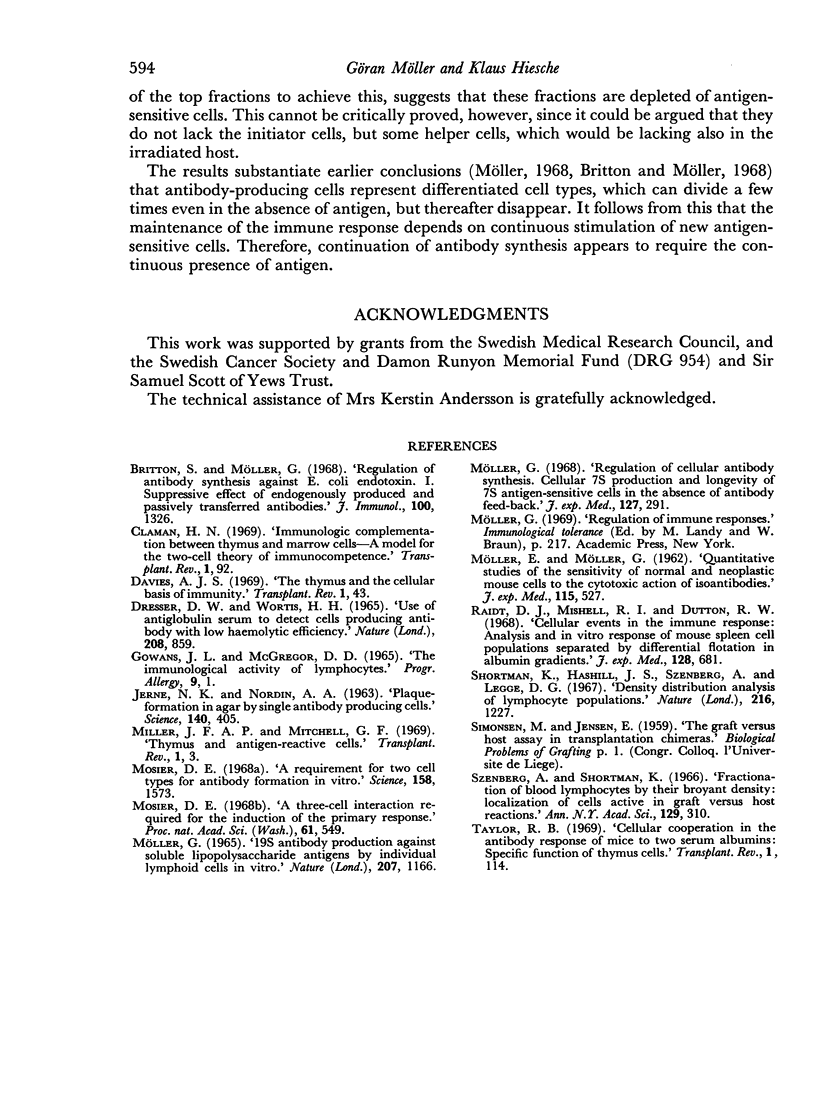
Selected References
These references are in PubMed. This may not be the complete list of references from this article.
- Britton S., Möller G. Regulation of antibody synthesis against Escherichia coli endotoxin. I. Suppressive effect of endogenously produced and passively transferred antibodies. J Immunol. 1968 Jun;100(6):1326–1334. [PubMed] [Google Scholar]
- Claman H. N., Chaperon E. A. Immunologic complementation between thymus and marrow cells--a model for the two-cell theory of immunocompetence. Transplant Rev. 1969;1:92–113. doi: 10.1111/j.1600-065x.1969.tb00137.x. [DOI] [PubMed] [Google Scholar]
- Davies A. J. The thymus and the cellular basis of immunity. Transplant Rev. 1969;1:43–91. doi: 10.1111/j.1600-065x.1969.tb00136.x. [DOI] [PubMed] [Google Scholar]
- Dresser D. W., Wortis D. H. Use of an antiglobulin serum to detect cells producing antibody with low haemolytic efficiency. Nature. 1965 Nov 27;208(5013):859–861. doi: 10.1038/208859a0. [DOI] [PubMed] [Google Scholar]
- Jerne N. K., Nordin A. A. Plaque Formation in Agar by Single Antibody-Producing Cells. Science. 1963 Apr 26;140(3565):405–405. doi: 10.1126/science.140.3565.405. [DOI] [PubMed] [Google Scholar]
- MOLLER E., MOLLER G. Quantitative studies of the sensitivity of normal and neoplastic mouse cells to the cytotoxic action of isoantibodies. J Exp Med. 1962 Mar 1;115:527–553. doi: 10.1084/jem.115.3.527. [DOI] [PMC free article] [PubMed] [Google Scholar]
- Miller J. F., Mitchell G. F. Thymus and antigen-reactive cells. Transplant Rev. 1969;1:3–42. doi: 10.1111/j.1600-065x.1969.tb00135.x. [DOI] [PubMed] [Google Scholar]
- Mosier D. E. A requirement for two cell types for antibody formation in vitro. Science. 1967 Dec 22;158(3808):1573–1575. doi: 10.1126/science.158.3808.1573. [DOI] [PubMed] [Google Scholar]
- Möller G. 19S antibody production against soluble lipopolysaccharide antigens by individual lymphoid cells in vitro. Nature. 1965 Sep 11;207(5002):1166–1168. doi: 10.1038/2071166a0. [DOI] [PubMed] [Google Scholar]
- Möller G. Regulation of cellular antibody synthesis. Cellular 7S production and longevity of 7S antigen-sensitive cells in the absence of antibody feedback. J Exp Med. 1968 Feb 1;127(2):291–306. doi: 10.1084/jem.127.2.291. [DOI] [PMC free article] [PubMed] [Google Scholar]
- Shortman K., Haskill J. S., Szenberg A., Legge D. G. Density distribution analysis of lymphocyte populations. Nature. 1967 Dec 23;216(5121):1227–1228. doi: 10.1038/2161227a0. [DOI] [PubMed] [Google Scholar]
- Taylor R. B. Cellular cooperation in the antibody response of mice to two serum albumins: specific function of thymus cells. Transplant Rev. 1969;1:114–149. doi: 10.1111/j.1600-065x.1969.tb00138.x. [DOI] [PubMed] [Google Scholar]


